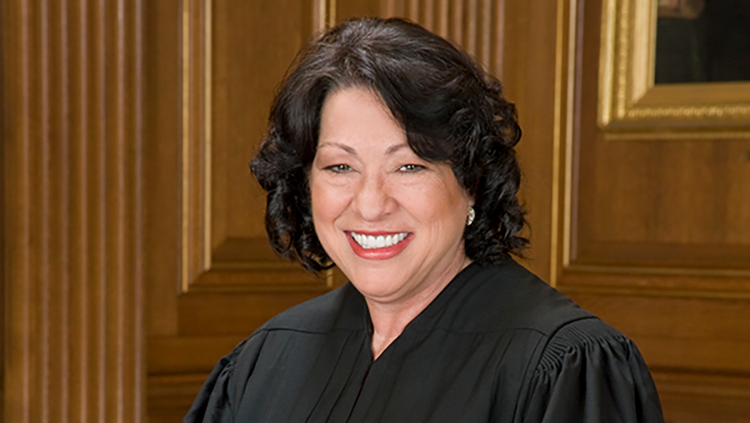Sotomayor has constitutional concerns in case of sex offender who couldn't find housing

U.S. Supreme Court Justice Sonia Sotomayor.
U.S. Supreme Court Justice Sonia Sotomayor is expressing “serious constitutional concerns” in the case of a sex offender forced to spend additional time in prison because he couldn’t find housing far enough away from schools in New York City.
Sotomayor raised her concerns in a Feb. 22 statement regarding the Supreme Court’s decision to deny certiorari in the case of Angel Ortiz.
Sotomayor said she agreed that Ortiz’s cert petition doesn’t satisfy the court’s criteria for hearing cases. But she raised questions about the effects of a New York law that bans certain sex offenders from living within 1,000 feet of a school after their release, which is “no easy task” in New York City.
Ortiz had proposed living with his mother and daughter in their New York City apartment when he qualified for release to community supervision. But the residence was too close to a school, as were dozens of other addresses that he proposed.
As a result, Ortiz served his 17 months of conditional release in prison. Then, after his full 10-year sentence was served, he had to spend another eight months in a state prison designated as a residential treatment facility.
“All told, because of New York’s residency prohibition, Ortiz was imprisoned for over two years longer than he otherwise would have been,” Sotomayor wrote.
Sotomayor said Ortiz may have had a liberty interest when he became entitled to conditional release and “indisputably held a liberty interest” after his full sentence ended.
Sotomayor cited a New Jersey appellate decision pointing out that residential restrictions can make it difficult for convicted sex offenders to find stable housing. That can lead to loss of employment and financial distress, factors that can increase the chance of offending again. She also cited “a large body of scholarship” that cautions against residency restrictions as a means of reducing recidivism.
“Despite the empirical evidence, legislatures and agencies are often not receptive to the plight of people convicted of sex offenses and their struggles in returning to their communities,” Sotomayor wrote. “Nevertheless, the Constitution protects all people, and it prohibits the deprivation of liberty based solely on speculation and fear.”
Hat tip to Courthouse News Service, which covered Sotomayor’s statement. The case is Ortiz v. Breslin.
Write a letter to the editor, share a story tip or update, or report an error.


